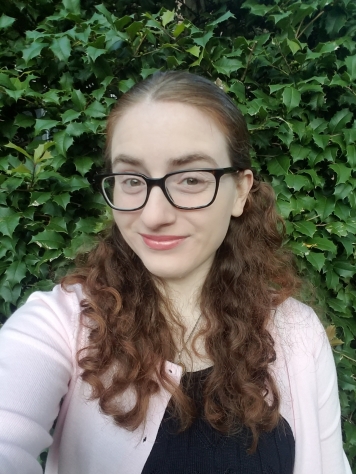She thought of it as a kind of game: every time she thought of the dead, she needed to fill her house with something living. It started simply enough with potted basil, potted violets, potted Venus flytraps, things with roots and the safety of soil and nothing but sunshine. They need not worry about drowning because they only ever got the right amount of water; they need not worry about withering, because the house was always climate controlled. But then she moved on to fish and mollusks. It started with a small platy, then a snail, then another snail, then dalmatian mollies that gave birth and ate their babies all in the same day and she decided to count all of the babies’ deaths as one so that she did not have to buy two dozen living things as penance for thinking about the dead. Instead, she bought a small potted peace lily. But then, after she’d bought as many small things as seemed possible and her thoughts of the dead lingered for longer moments that sometimes lasted for entire afternoons, she moved up to bigger animals—dogs, cats, birds, and even a particularly friendly bearded dragon that an old co-worker was looking to rehome. She filled the place so fully that it seemed every inch of floor was coated in something or someone. It was difficult to see around the place because of the collection of Ficuses, ferns, and bamboo that made the place so lush with green, that made it so easy to breathe. She had chuckled to herself about her mother’s favorite saying with the forest and the trees, and then she’d needed to feed the dogs and immediately go to the store and pick up a catfish for one of the aquariums. She had no cause to leave the house except for supplies, no one to speak to or answer to. Her hours were monopolized by care, her hands so busy watering and cleaning and preparing that she hardly had time to think of the dead. The place looked like an island from a picture book she’d read as a child, one about wild things, one about escape. If she took off her glasses, the rooms around her blurred. Nothing had walls or boundaries. All there was was wild green and animals chattering away. The place was so full of life that thinking of the opposite was impossible. And then, one day, she smelled the faintest hint of decay. She left to bring back something living. But when she returned, the rotting stench was worse. She had surrounded herself with so much life that she could not find the source of decomposition, as though it were mocking her. And every moment of every day she thought about the dead, but now there was no escape. She could not leave to bring back more life, to cover up the worsening signs of death. She had no choice but to live among the expiration, a reminder of it dawning again and again with each stubborn breath that her own lungs demanded.
 Audrey T. Carroll is a Best of the Net nominee, the editor of Musing the Margins: Essays on Craft (Human/Kind Press, 2020), and the author of Queen of Pentacles (Choose the Sword Press, 2016). Her work has been published or is forthcoming in (mac)ro(mic), Miracle Monocle, The Broken Plate, Elsewhere: A Journal of Place, So to Speak, and others. She is a bi/queer and disabled/chronically ill writer who serves as a Diversity & Inclusion Editor for the Journal of Creative Writing Studies. She can be found at http://audreytcarrollwrites.weebly.com and @AudreyTCarroll on Twitter, Facebook, and Instagram.
Audrey T. Carroll is a Best of the Net nominee, the editor of Musing the Margins: Essays on Craft (Human/Kind Press, 2020), and the author of Queen of Pentacles (Choose the Sword Press, 2016). Her work has been published or is forthcoming in (mac)ro(mic), Miracle Monocle, The Broken Plate, Elsewhere: A Journal of Place, So to Speak, and others. She is a bi/queer and disabled/chronically ill writer who serves as a Diversity & Inclusion Editor for the Journal of Creative Writing Studies. She can be found at http://audreytcarrollwrites.weebly.com and @AudreyTCarroll on Twitter, Facebook, and Instagram.